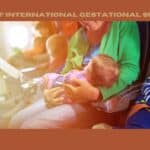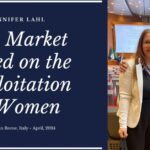 Here’s another story out in the London Daily Mail on anonymous sperm donation. This story raises the issue of the “hidden health risks” when you don’t know half of your biological history. Kathleen LaBounty, pictured here, is a young woman I know. We’ve chatted and emailed back and forth and will be actually running a feature piece on her next week – stay tuned!
Here’s another story out in the London Daily Mail on anonymous sperm donation. This story raises the issue of the “hidden health risks” when you don’t know half of your biological history. Kathleen LaBounty, pictured here, is a young woman I know. We’ve chatted and emailed back and forth and will be actually running a feature piece on her next week – stay tuned!
Anyway, the point of this story is the unknowns may actually put you at medical risk.
Like Stella, diagnosed with skin cancer said, “had I known I had any family history of skin cancer, I might have spent much less time baking in the sun.”
Plug in any illness. Had I known my father died of stomach cancer, I may have had early screenings and testing done. Had I known there was a strong family history of heart disease, I might have been more attentive to my diet and exercise habits.
Of course the same situation occurs with children conceived by egg donation. But reality is, many egg donation children NEVER will know that they were created this way since they grow up seeing pictures and hearing stories about their mother’s pregnancy.
Since 2005, the United Kingdom’s laws changed allowing children born by egg or sperm donation to access their records once they turn 18. However, if your parents don’t tell you, and you don’t know that you are the product of egg or sperm donation, you don’t know to go and access your records.
Genetic secrets should not be allowed. Kathleen should not have had to spend so many years in search of her biological father.
Author Profile

- Jennifer Lahl, MA, BSN, RN, is founder and president of The Center for Bioethics and Culture Network. Lahl couples her 25 years of experience as a pediatric critical care nurse, a hospital administrator, and a senior-level nursing manager with a deep passion to speak for those who have no voice. Lahl’s writings have appeared in various publications including Cambridge University Press, the San Francisco Chronicle, the Dallas Morning News, and the American Journal of Bioethics. As a field expert, she is routinely interviewed on radio and television including ABC, CBS, PBS, and NPR. She is also called upon to speak alongside lawmakers and members of the scientific community, even being invited to speak to members of the European Parliament in Brussels to address issues of egg trafficking; she has three times addressed the United Nations during the Commission on the Status of Women on egg and womb trafficking.
Latest entries
 infertilityApril 23, 2024The Rise of International Gestational Surrogacy in the U.S.
infertilityApril 23, 2024The Rise of International Gestational Surrogacy in the U.S. Assisted Reproductive TechnologyApril 16, 2024Founder Jennifer Lahl’s Speech on Surrogacy to the Casablanca Declaration
Assisted Reproductive TechnologyApril 16, 2024Founder Jennifer Lahl’s Speech on Surrogacy to the Casablanca Declaration #BigFertilityFebruary 27, 2024No, Alabama Didn’t Ban IVF
#BigFertilityFebruary 27, 2024No, Alabama Didn’t Ban IVF ArticleSeptember 25, 2023The Little Engine That Could
ArticleSeptember 25, 2023The Little Engine That Could

